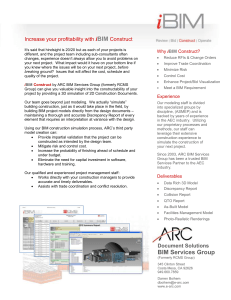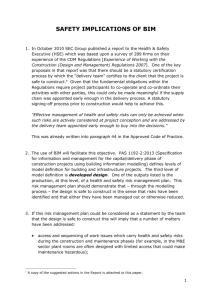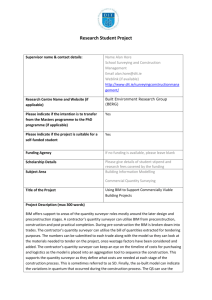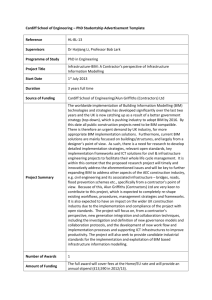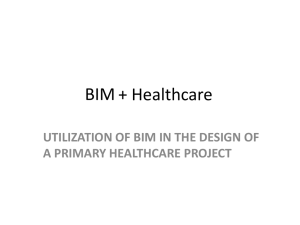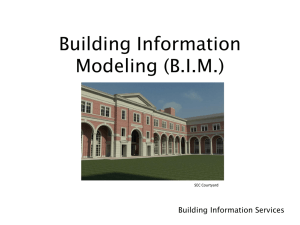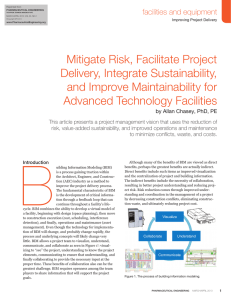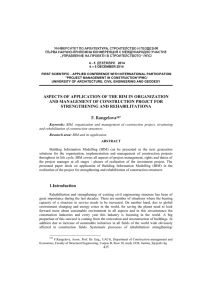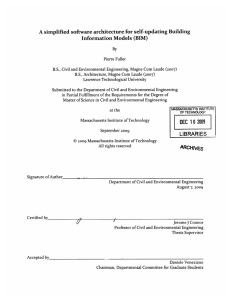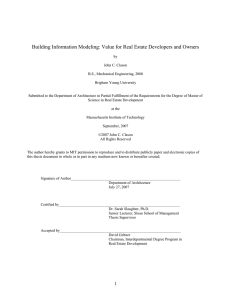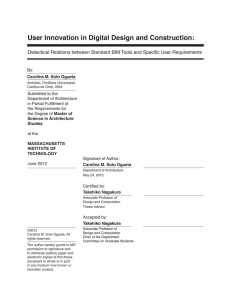Collaborative Public Works Contracts Using BIM. An Opportunity for
advertisement
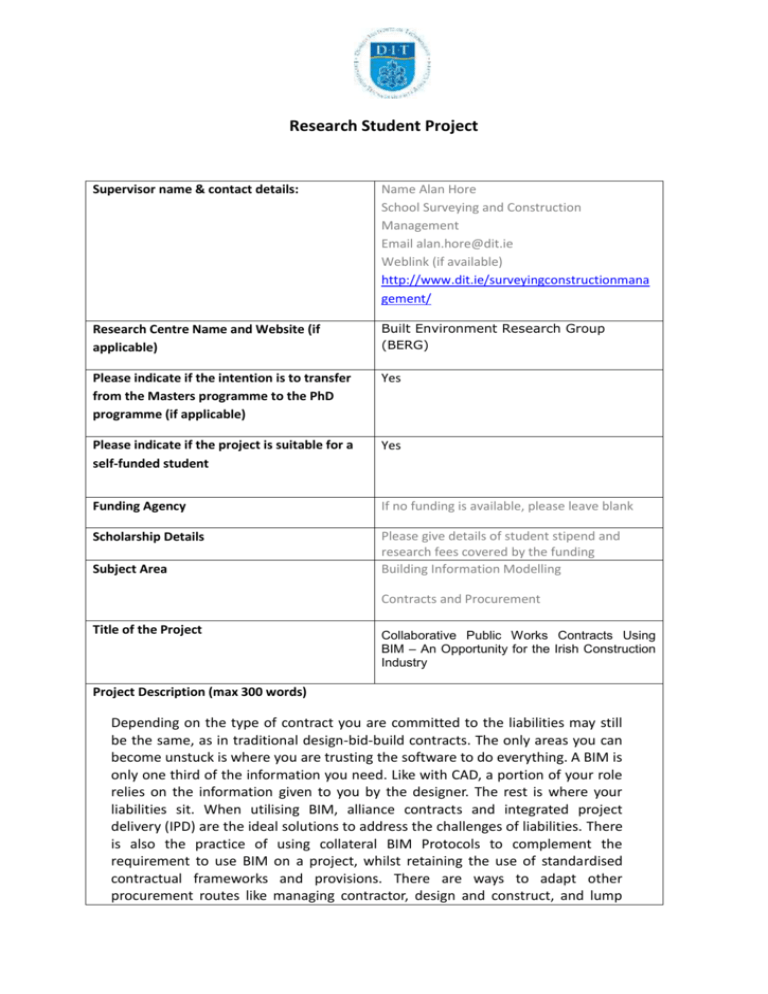
Research Student Project Supervisor name & contact details: Name Alan Hore School Surveying and Construction Management Email alan.hore@dit.ie Weblink (if available) http://www.dit.ie/surveyingconstructionmana gement/ Research Centre Name and Website (if applicable) Built Environment Research Group (BERG) Please indicate if the intention is to transfer from the Masters programme to the PhD programme (if applicable) Yes Please indicate if the project is suitable for a self-funded student Yes Funding Agency If no funding is available, please leave blank Scholarship Details Please give details of student stipend and research fees covered by the funding Building Information Modelling Subject Area Contracts and Procurement Title of the Project Collaborative Public Works Contracts Using BIM – An Opportunity for the Irish Construction Industry Project Description (max 300 words) Depending on the type of contract you are committed to the liabilities may still be the same, as in traditional design-bid-build contracts. The only areas you can become unstuck is where you are trusting the software to do everything. A BIM is only one third of the information you need. Like with CAD, a portion of your role relies on the information given to you by the designer. The rest is where your liabilities sit. When utilising BIM, alliance contracts and integrated project delivery (IPD) are the ideal solutions to address the challenges of liabilities. There is also the practice of using collateral BIM Protocols to complement the requirement to use BIM on a project, whilst retaining the use of standardised contractual frameworks and provisions. There are ways to adapt other procurement routes like managing contractor, design and construct, and lump sum to adopt some of the BIM benefits. An incomplete model is no different to an incomplete set of drawings so it cannot be the sole source of information to rely on. In Ireland, large and progressive contractors are claiming significant benefits in construction management efficiency through the implementation of BIM. While these contractors note that the cost benefits to the project budget alone justify the implementation of BIM in the field, they are acutely aware that in 2011 the UK Government has mandated the construction industry in the UK to use BIM on all public projects by 2016. In the Republic of Ireland however, in 2007, the Government introduced the Public Works Contracts (PWC) suite for the procurement of all public sector works. After 8 years of working with the PWC suite of contracts, these contracts have now been widely identified as being unfairly balanced in favour of the Employer and as being a barrier influencing the prospect for recovery of the construction industry in Ireland. A recent Irish Government agency report recommended a review of the current contract for Public Works by both Government and Industry stakeholders with a view to implementing any changes required to ensure fair and reasonable terms for all parties involved. This review is currently underway and, in submissions, Industry stakeholders have called for the PWC to be revised to include a more collaborative and co-operative approach. This research project will consider the experiences of other jurisdictions in adopting collaborative construction contract practices through BIM and will propose how the industry in Ireland can leverage BIM to create a more integrated and collaborative environment for the purpose of delivering better project outcomes for the key stakeholders involved in construction projects. Please indicate the student requirements for this project Minimum 2.2 Honours degree in Quantity Surveying Deadline to submit applications (only for funded projects) 4th January 2016

